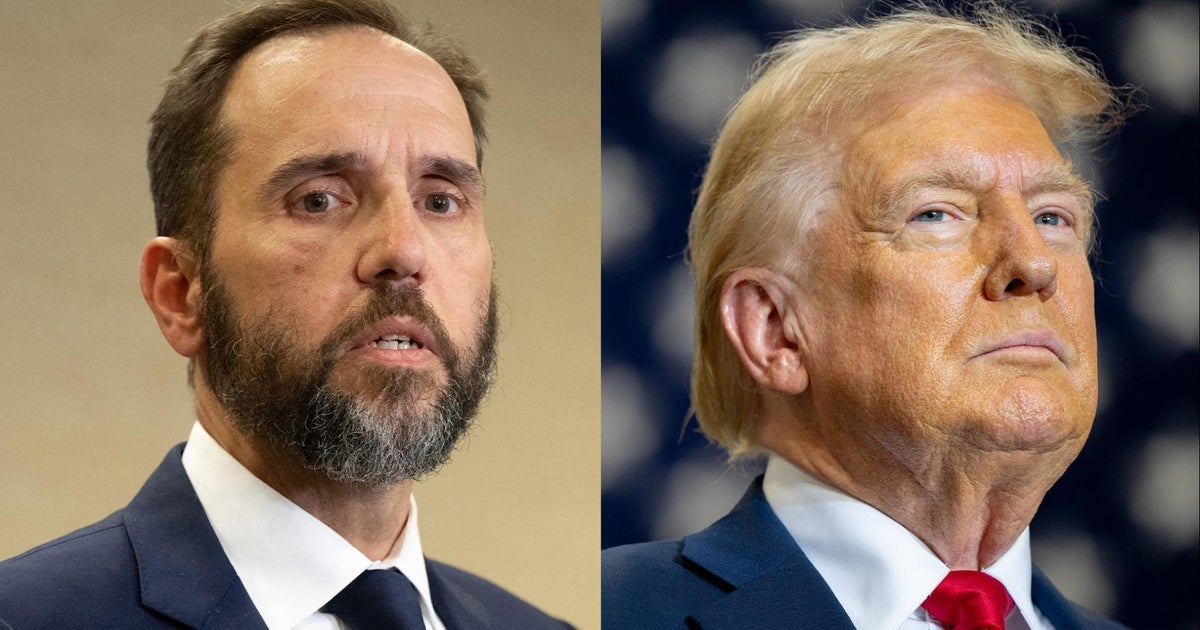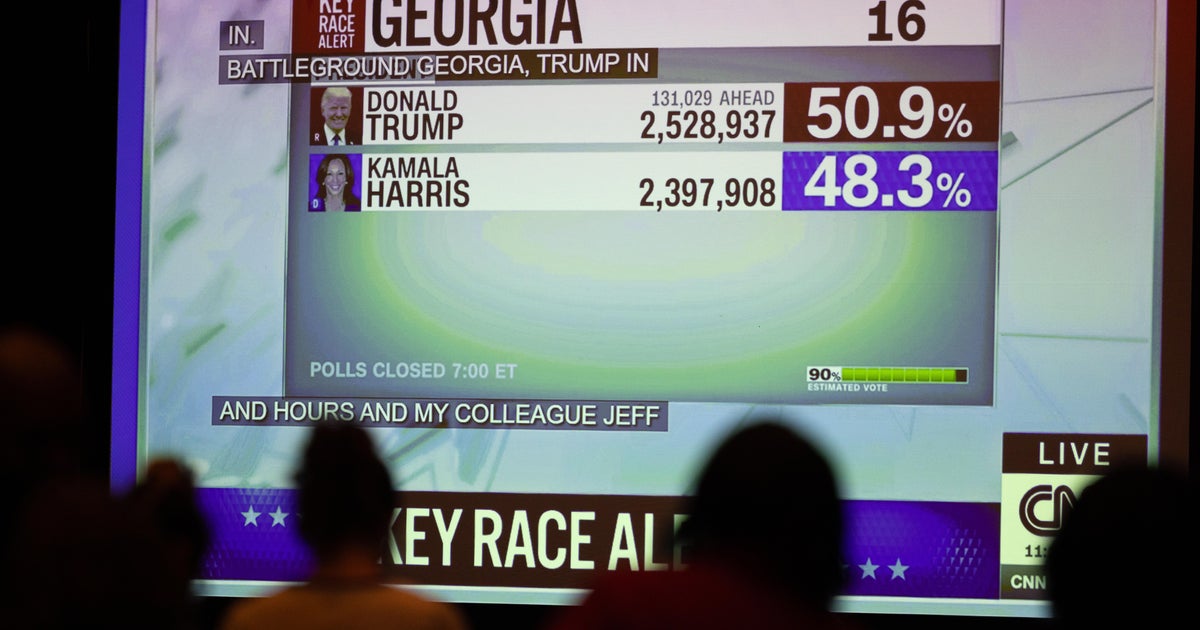18 indicted in alleged 2020 fake Arizona elector scheme tied to Trump, AG announces
An Arizona grand jury indicted 18 people Wednesday in the ongoing investigation into an alleged attempt to use alternate electors after the 2020 presidential election as part of a wider alleged conspiracy to falsely declare then-President Donald Trump the winner, the state's attorney general announced. Former Trump adviser Rudy Giuliani and former White House chief of staff Mark Meadows are among those facing charges in the case.
The alleged fake electors and defendants named in the indictment were Kelli Ward, Tyler Bowyer, Nancy Cottle, Jacob Hoffman, Anthony Kern, James Lamon, Robert Montgomery, Samuel Moorhead, Lorraine Pellegrino, Gregory Safsten and Michael Ward, with several other defendants not named.
Ward was the Arizona Republican Party chair, and Hoffman and Kern are both Arizona state senators. Hoffman had in the past several weeks been pursuing a position with the Republican National Committee.
The defendants, according to the indictment, are accused of pressuring election officials to change the outcome of the 2020 presidential election. After the secretary of state, board of supervisors and GOP Gov. Doug Ducey certified that Joe Biden had won the election in Arizona over Trump, the defendants, who were the Republican presidential electors for Arizona, voted for Trump and then-Vice President Mike Pence. They were, the indictment says, "falsely claiming to be the duly elected and qualified Electors for President and Vice President of the United States from the State of Arizona."
In a statement, Democratic Attorney General Kris Mayes said the indictments were the results of a "thorough" 13-month investigation. "I will not allow American democracy to be undermined," Mayes said. "It is too important."
Additional defendants' names were redacted from court documents because they had not yet been served, Mayes said. Some, however, could be identified by their descriptions in court documents.
The indictment described Trump as "Unindicted Coconspirator 1." Trump has repeatedly called such prosecutions "witch hunts."
One of the unnamed defendants, referred to as "an attorney for Unindicted Coconspirator 1 who was often identified as 'the Mayor'" was confirmed to be Rudy Giuliani, who was later served an indictment. Jenna Ellis, another attorney who joined Giuliani in helping spread baseless claims of widespread voter fraud, also appears to be described in the documents.
Another unnamed defendant is referred to as Trump's chief of staff in 2020, which would have been Mark Meadows. Another unidentified defendant was the Trump campaign's Director of Election Day Operations, a title that belonged to Mike Roman.
Attorney George Terwilliger, who represents Meadows, told The Associated Press that while he hadn't seen the indictment, naming Meadows would be "a blatantly political and politicized accusation and will be contested and defeated."
Ted Goodman, a political adviser to Giuliani, told the AP the indictment shows "the continued weaponization of our justice system."
While Ellis did not directly publicly comment, she replied, "It's been a great day to keep serving a faithful God" on X when a user asked her, "it wasn't the best of days for you was it?"
In a statement on X, the Republican Party of Arizona called the indictments "politically motivated" and a "blatant abuse of legal authority aimed to disrupt, distract, and interfere in the 2024 election."
Trump campaign spokesperson Steven Cheung said in a statement that the case is a "another example of Democrats' weaponization of the legal system."
Prosecutors are accusing the defendants of deceiving Arizonans "by falsely claiming that those votes were contingent only on a legal challenge that would change the outcome of the election."
However, the indictment says that in fact, the defendants intended to use their false votes to "encourage (Vice President) Pence to reject the Biden-Harris votes on January 6, 2021, regardless of the outcome of the legal challenge." They allegedly hoped that when six other states with false GOP electors submitted their uncertified votes for Trump and Pence, that Pence would either declare Trump the winner, "delay the proceeding and have individual state legislatures determine their electors, or have Congress resolve any claimed uncertainty about the validity of election results in Arizona and six other states" in Trump's favor.
"The scheme failed," prosecutors said in the indictment, when Pence accepted all certified Biden-Harris votes on Jan. 6, 2021.
Hoffman told the Arizona Republic in a statement that he is "innocent of any crime," and "I look forward to the day when I am vindicated of this naked political persecution by the judicial process."
An attorney for Lamon also told the Arizona Republic the indictment is "a politically motivated prosecution."
The Arizona Republican Party called the indictments a "blatant and unprecedented abuse of prosecutorial power" and said it "condemns these actions in the strongest terms."
The charges being brought include fraud, forgery, and conspiracy, which are class 2, 4, and 5 felonies, Mayes said.
Arizona is one of seven states that Trump lost in 2020 where the former president's allies allegedly attempted to create a fraudulent register of electors.
"Unwilling to accept" the fact that Biden won the 2020 presidential election, the defendants "schemed to prevent the lawful transfer of the presidency" by raising false claims of election fraud and organizing fake elector votes, the indictment said.
The alleged fraud was committed to prevent "the lawful transfer of the presidency of the United States," keeping "Trump in office against the will of Arizona voters, and depriving Arizona voters of their right to vote and have their votes counted," court documents said.
The Arizona indictments came as Trump and 18 of his associates face charges of racketeering, election fraud and other charges in Fulton County, Georgia, over an alleged effort to overturn the 2020 presidential election, including the alternate elector scheme. That indictment alleged that some of the defendants solicited legislators to appoint new electors in other states besides Georgia, including Arizona.
In August of last year, the former president was indicted by a federal grand jury over alleged efforts to overturn the 2020 presidential election. That indictment, stemming from special counsel Jack Smith's investigation into Trump's actions following the 2020 election, cited a memo outlining a strategy for Trump supporters to serve as fake electors.
The former president has denied all wrongdoing in both of those cases.
Kathryn Watson, Scott MacFarlane and Olivia Rinaldi contributed reporting.



